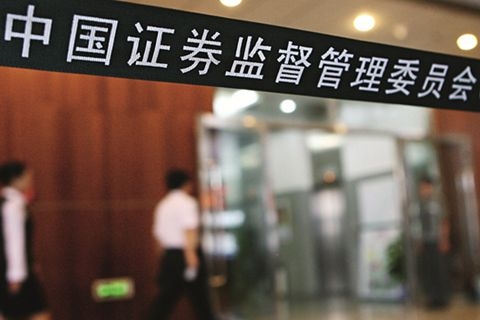China Relaxes Refinancing Rules for Listed Firms

China’s securities regulator revised its rules on private share placements as part of efforts to help ease liquidity crunches facing listed companies.
Publicly traded businesses now can use all the money they raise through private share placements to replenish operating capital and repay debts, the China Securities Regulatory Commission (CSRC) said Friday at a press conference.
Of money raised through other means, they can use no more than 30% for those purposes under new rules, the agency said. Companies with light assets and large investments in research and development might exceed the 30% limit if they can adequately justify the use.
In addition, companies are now allowed to sell additional shares six months after a round of private placement rather than waiting at least 18 months as previously required, the CSRC said.
The old restrictions on private placements together with problems obtaining financing have forced many listed companies and their big shareholders to pledge shares as collateral for loans. But with the recent sell-off in China’s stock markets, there’s a growing risk that lenders will be forced to sell the pledged shares, accelerating the downturn.
The revisions aim to “further serve the development of the real economy, optimize the resource allocation of the capital market and encourage technological innovation,” said Gao Li, spokeswoman for the CSRC.
Several investment bankers told Caixin that the move was “correcting mistakes” made when the restrictions were issued in February 2017 and practically killed the private placement market.
The 2017 rules limit private placements to no more than 20% of a company’s share base and prohibit them within 18 months of a previous round of fundraising. Later, new regulations extended the lock-up period for private placements to as long as five years, including the approval process.
The 2017 rules also require that companies can set the price of a private placement based only on the share price the day of issuance, giving investors in private placements no advantage compared with buying shares on the secondary market. The revised rules issued Friday don’t change the price-setting date. Many analysts said retaining that element will do little to boost investors’ enthusiasm in private placements.
Only if the regulator further relaxes the pricing restriction can the private placement market revive, one investment banker said.

- 1Cover Story: China Carves Out a Narrow Path for Offshore Asset Tokenization
- 2Drownings Shake Chinese Enthusiasm for Travel to Russia
- 3China Business Uncovered Podcast: A $15 Billion Bitcoin Seizure and the Fall of a Cybercrime Kingpin
- 4Over Half of China’s Provinces Cut Revenue Targets
- 5Li Ka-Shing’s Port Empire Hit by Forced Takeover Amid Panama Legal Dispute
- 1Power To The People: Pintec Serves A Booming Consumer Class
- 2Largest hotel group in Europe accepts UnionPay
- 3UnionPay mobile QuickPass debuts in Hong Kong
- 4UnionPay International launches premium catering privilege U Dining Collection
- 5UnionPay International’s U Plan has covered over 1600 stores overseas





